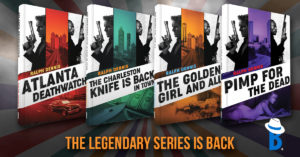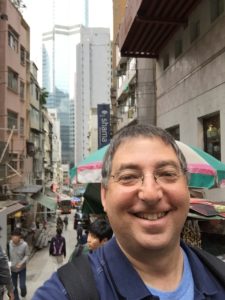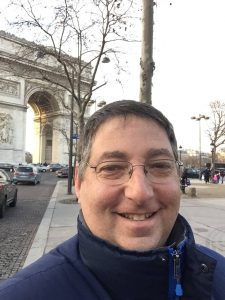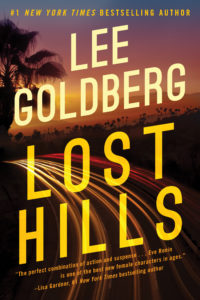
Mission Accomplished: Hardman is Back

#1 New York Times Bestselling Author & TV Producer

I opened up to CrimeReads about my addiction to Ralph Dennis’ amazing HARDMAN novels and how it led me to launch a publishing company, Brash Books, with Joel Goldman. Here’s an excerpt:
My expensive, life-changing addiction began six years ago when a man approached me in a nameless hotel in a city I don’t remember.
“You’re really going love this,” Bill Crider said, almost in a whisper. “And I’m not going to let you leave here until you buy it.”
We were standing in front of a used bookseller’s table at a writer’s conference. I looked down and saw that Bill was holding a yellowed, brittle paperback out to me. It was entitled Hardman #1, The Charleston Knife is Back in Town by Ralph Dennis. The slug line across the top of the cover read “Brace yourself for broads, bullets, and bare-fisted action!”
It was obvious from the numbered title that it was one of those cheap, men’s action adventure paperbacks, a genre I knew well, having written, under the pseudonym “Ian Ludlow,” a series called .357 Vigilante in the mid-1980s for the same publisher that released this book. While there were some gems in the genre, most of them were hack work, badly written excuses for explicit sex and graphic violence that were sold in grocery store spinner racks nationwide. And a book called “Hardman”—wink, wink, nudge nudge—promised to be among the worst of them.
Bill must have seen the skepticism on my face so he smiled and said, “Trust me. You won’t regret it.”
This is how it often is with pushers. Have a taste, they say, it won’t hurt you.
And Bill was particularly good at pushing old paperbacks and forgotten authors. He was a kind, decent, warm man, an acclaimed author, and an expert on crime fiction. People trusted him. I trusted him…
I think you’ll enjoy the essay… and I strongly, enthusiastically, passionately recomment that you check out the HARDMAN novels.

Research is absolutely necessary when you’re writing thrillers…and it’s a part of the process I love, perhaps because I come from a family of journalists (and I was one once). The danger, for me, is that the more I learn about a topic, the more I want to learn…and it’s easy for me to end up spending far more time than is necessary on the research (it’s also a great form of procrastination.. you can fool yourself into thinking you’re working instead of actually avoiding work). I can talk to dozens of experts, and read three or four books and countless articles, for what might end up being only a few lines of dialogue or description in the book (or, OTOH, what ends up being the core of the story). But that’s always better than writing pages of exposition, description, or dialogue to show off how much research you’ve done. I’m a big believe that one sentence offering a telling detail is far better than a paragraph of description. That said, having the “extra” knowledge on a particular topic in the back of your mind as you write ends up deepening the story and the characters in subtle ways… and often, at least for me, research inspires new characters or plot twists that I never would have come up with otherwise.
Travel is my favorite part of research (and it was a lot of fun to do for KILLER THRILLER, my latest release). Sure, you can use guidebooks, watch Bourdain or Rick Steves episodes, and do a deep dive into Google Earth to fake it, and I’ve done that a few times out of necessity, but I truly believe that nothing beats “feet on the ground” to get that tiny detail, smell, taste or sound that will bring a place, a moment, or a character to life. It’s important to truly experience the place you are writing about. That means not just hitting the tourist spots, but the places where the “locals” live and work. It also means being gregarious and talking to those people — so you can create realistic characters who truly reflect the places you’ve been. I usually already have my story in mind before I travel for research… but inevitably, my story changes dramatically after what I learn from actually experiencing a place I only imagined as I was plotting.

To write my books, I’ve traveled to France, China, Australia, Belgium, Canada, Germany, and all over the United States, among other places. But travel research can mean just stepping outside your door and seeing your own city in a new way.
I’ve lived in Los Angeles for over 30 years. In my novel THE WALK, a guy is stuck in downtown in LA when the big one hits and has to walk across a landscape of destruction back to his gated community in the San Fernando Valley. I know the L.A. well, but I still read a bunch of books and articles on the city, the architecture, and the neighborhoods that make it up, on earthquakes and what experts expect the damage from The Big One is likely to be. I had the story plotted out but then decided, if I was going to do this right, I really needed to take the walk myself. And when I did (not all at once, like my character), I saw things that made me rethink my plot and I picked up the key details of place and character that made the book come alive. When it was over, I had a better understanding, and a new affection, for the city I live in and thought I already knew.
I attended a homicide investigators training conference almost two years ago — I was one of only three civilians invited — as research for a book I was thinking about writing (and had already loosely plotted). While I was there, however, I learned about a case that I couldn’t get out of my head. I was smart enough to throw out my story and to focus instead on using this real case as the inspiration for my novel. I introduced myself to all of the detectives, forensic specialists, etc. who were there to present the case, told them I intended to write about it, and asked if they would let me talk with them in more depth in the weeks following the conference. They all agreed. The novel that came out of that wonderful research experience, LOST HILLS, is being released this fall and I’ve already signed to write the sequel. The book would never have happened if I hadn’t done the research my story…and been open to the inspiration that can come when you begin exploring the “reality” that is the foundation for our fiction.
 I’m so excited about this! Yesterday KILLER THRILLER launched and today my novel LOST HILLS, the first in a new series, is now available for preorder on Amazon.
I’m so excited about this! Yesterday KILLER THRILLER launched and today my novel LOST HILLS, the first in a new series, is now available for preorder on Amazon.I’m interviewed in this new, short video from Firelight Entertainment Group about how my book WATCH ME DIE came about. I’m fond of all the books that I’ve written, but in some ways, this may be my favorite.